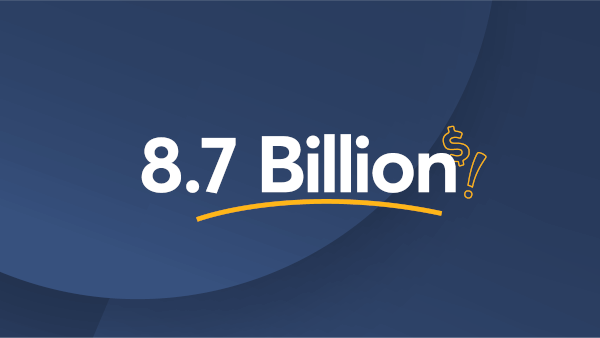Brex and Wise are Solving Growing Pain Points for Employers: Global Employee Reimbursements
The “Going Global” Challenge In today’s post-pandemic world where employees can work from anywhere and companies are more frequently hiring beyond their...

By Nilan Peiris, VP Growth at Wise
There’s a wave of disruption coming to the world of banks and financial services. It goes by the name of FinTech and is a call for disrupting the conservative world of banking. Transforming an industry run for the profits of shareholders into a new world of services built from the ground up. For its customers.

Nilan Peiris speaking at #FinTechWise in Berlin last week.
Banks could have started Wise at any point in the past 100 years. But they didn’t. Why?
Profits, unwillingness to change and old technology are the usual suspects. But there are also deeper issues. For years banks have been signing up customers by giving away bank accounts. Unfortunately for banks, customers have come to demand these basic financial services for free. As a consequence over the decades, banks have developed a suite of “value added” services they charge for: credit card fees, overdraft fees, international money transfer charges, poor rates of return on savings accounts — this is where banks make their money.
Things you didn’t ask for, and frequently weren’t aware you were even paying for. As long as banks’ most valuable customers are the people that pay them the most in fees, they’ll struggle to change. The caricature of the fat cat banker making money from other people’s misery is hard to shake — because it’s true.
We’ve now got a cluster of FinTech companies that have proven that you don’t need banks to provide financial services. Funding Circle and Xero are great examples in the UK, Lendico and Friendsurance in Germany.
By focussing on customers and working backwards to build products their customers need they have proven that you can build high quality products. Products that offer customers a superior service at a fraction of the cost they’re used to.
These startups have had to work through huge challenges in regulation, access to infrastructure and barriers in trust to get to market. The current regulatory regime was designed for an age where you walked into a branch to prove your identity. It hasn’t updated for the internet age where customers are demanding 24 hr access to services from their computers and mobile devices. Access to basic financial infrastructure is controlled by the monopolies that the new entrants are seeking to displace.
The barriers to entry are being raised as the incumbents become more aware of the risk. But, above all, the biggest challenge facing new disruptors is how to build trust.
Trust is the hardest barrier for a FinTech company to overcome. Banks have been around for hundreds of years. You can walk into them, touch them, shake them by the hand. Your dad banked there, your grandad banked there, even your kids bank there.
For a new startup to displace this trust a clever marketing campaign is never going to be enough.
Focussing on customers - sounds trite - but is the way the wave of FinTech companies have solved the trust conundrum. By aspiring to build a product so great their customers are evangelical they build trust and grow. New customers don’t trust FinTech - they trust their friends who’ve had a great experience.
FinTech companies have an incredible focus on customers as a prerequisite to operate and grow. Taken to its extreme you end up with a business where everyone understands their role in delighting customers.
They can quantify the relationship between NPS and growth. They can figure out how and where to invest their customer’s money (their margin) in order to delight their customers further and take their vision to the world.
A business that’s not run to maximise value for its shareholders, but is a service run on behalf of its customers - that is a movement with a mandate to change the world.
Onwards.
Follow Nilan on Twitter here. Want to join the FinTech revolution? Wise is hiring.
*Please see terms of use and product availability for your region or visit Wise fees and pricing for the most up to date pricing and fee information.
This publication is provided for general information purposes and does not constitute legal, tax or other professional advice from Wise Payments Limited or its subsidiaries and its affiliates, and it is not intended as a substitute for obtaining advice from a financial advisor or any other professional.
We make no representations, warranties or guarantees, whether expressed or implied, that the content in the publication is accurate, complete or up to date.

The “Going Global” Challenge In today’s post-pandemic world where employees can work from anywhere and companies are more frequently hiring beyond their...

Hidden exchange rate markups estimated to cost Americans $8.7 billion in 2019 Consumers and businesses lose billions every year when they send and spend money...

We’ve just finished Q3. It’s time for an update on how much closer we’ve got to making our mission of Money Without Borders a reality.

Our mission has become irreversible, the company financially independent, and adoption continues to accelerate. Thank you - Wise customers - for...

To the Wise community When my co-founder and I launched Wise 7 years ago, we set out to irreversibly fix how money doesn’t work across...

You have made Wise possible. You keep our lights on, so that we can make money move faster and cheaper for you. This is our Q2 report to you.